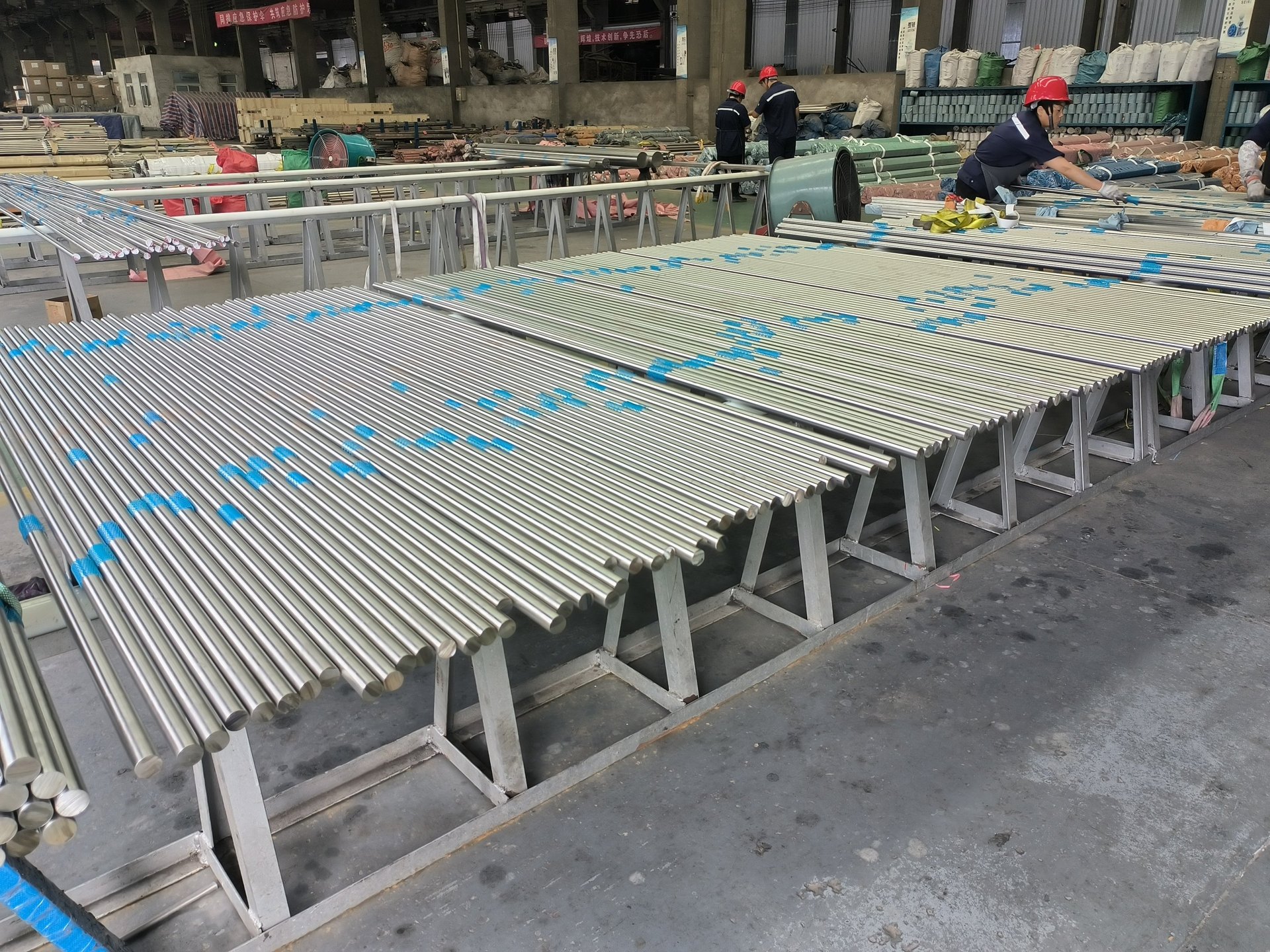
Nickel Alloy Bars Global Supplier
Manufacturing & Solutions
Inconel Alloy / Incoloy Alloy / Others Alloy
Products > SS 316
PMI STEEL SS316 Bar features a molybdenum-bearing grade that enhances its resistance to corrosive environments compared to Stainless Steel 304, particularly in conditions involving sulfuric, hydrochloric, formic, and tartaric acids where pitting is common. This versatile alloy not only boasts excellent forming and welding properties but can also be easily folded or rolled for various applications. Stainless Steel 316 outperforms 304 in high-temperature settings and is widely regarded as one of the most popular austenitic stainless steels. Its exceptional welding capabilities and corrosion resistance make it ideal for applications such as food preparation equipment, marine architecture, boat fittings, quarrying screens, water filtration systems, heat exchangers, and jet engine components.
Steel Grade:
SS316 / S31600 /Wr. 1.4401 , ASTM A959-2004,JIS G 4303-2005
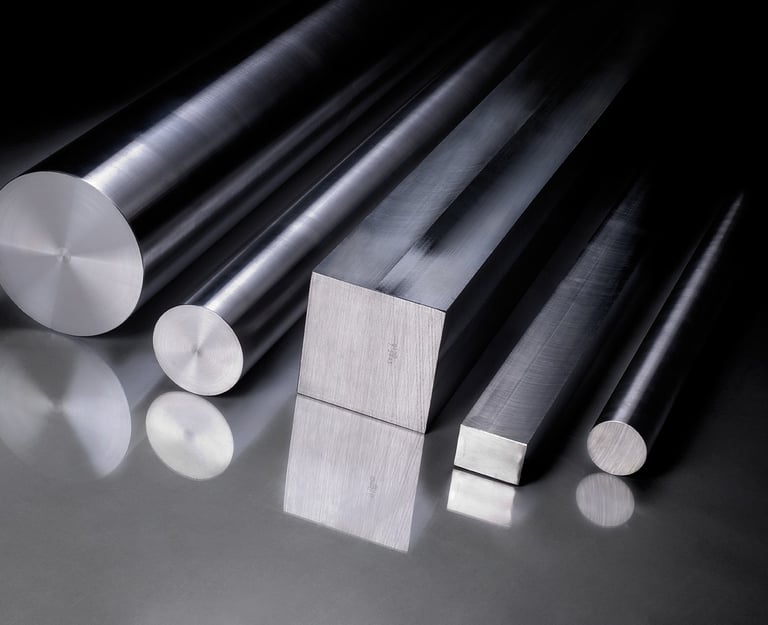

PMI STEEL SS 316 Bar
SS316 / S31600 / Wr.1.4401

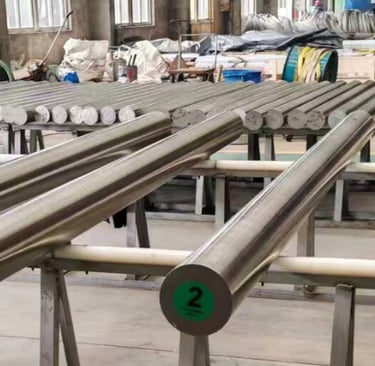
Product Description
The PMI SS316 Bar is a high-performance stainless steel product known for its exceptional resistance to corrosion and oxidation, making it ideal for a wide range of applications in various industrial sectors.
The addition of Mo element to 316 stainless steel greatly improves its corrosion resistance and high temperature strength. Its corrosion resistance is better than that of 304 stainless steel, and it has good corrosion resistance in the production process of pulp and paper. Moreover, 316 stainless steel is also resistant to corrosion by marine and corrosive industrial atmospheres.
316 stainless steel (06Cr17Ni12Mo2) has good oxidation resistance in intermittent use below 871°C (1600°F) and continuous use above 927C° (1700°F). It is best not to use 316 stainless steel continuously within the range of 427°C-857°C (800°F-1575°F), but it has good heat resistance when used continuously outside this temperature range. 316L stainless steel has better resistance to carbide precipitation than 316 stainless steel and can be used in the above temperature range.
Anneal in the temperature range of 1850-2050°F, then rapidly anneal, and then rapidly cool. 316 stainless steel cannot be hardened by heat treatment.
316 stainless steel has good welding properties. It can be welded by all standard welding methods. When welding, 316Cb, 316L or 309Cb stainless steel filler rods or electrodes can be used for welding according to the application. For the best corrosion resistance, the welded section of 316 stainless steel needs to be annealed after welding. If 316L stainless steel is used, no post-weld annealing is required
Main Chemical Composition
- Chromium (Cr): 16.0% - 18.0%
- Nickel (Ni): 10.0% - 14.0%
- Molybdenum (Mo): 2.0% - 2.5%
- Carbon (C): ≤ 0.08%
- Silicon (Si): ≤ 1.0%
- Manganese (Mn): ≤ 2.0%
- Phosphorus (P): ≤ 0.045%
- Sulfur (S): ≤ 0.030%
This balanced composition provides excellent resistance to pitting and crevice corrosion.
Mechanical Properties
- Yield Strength: Approximately 290 MPa (42,000 psi)
- Tensile Strength: Approximately 580 MPa (84,000 psi)
- Elongation: ≥ 40% (in 50mm sample)
- Hardness (Brinell): Max 217 HB
Physical Properties
- Density: 7.9 g/cm³
- Thermal Conductivity: 16.2 W/m·K
- Specific Heat Capacity: 0.50 J/g·°C
- Melting Point: Approximately 1375-1400°C (2500-2550°F)
- Magnetic Permeability: Non-magnetic in the annealed condition
These properties contribute to the versatility and effectiveness of PMI SS316 across various applications.
Key Performance Features
- Corrosion Resistance: Outstanding resistance to chloride-induced stress corrosion cracking, making it a preferred choice in marine and chemical processing environments.
- High-Temperature Strength: Maintains mechanical strength and oxidation resistance even at elevated temperatures.
- Versatility: Suitable for a wide array of fabrication processes, including welding, machining, and forming.
- Longevity: High durability ensures long service life, reducing replacement costs for industrial applications.
Functionality, Appearance, Size, Color
PMI SS316 bars exhibit a smooth and shiny metallic surface, characterized by a uniform silver-grey color. Common specifications include:
- Diameter Range: From 5 mm to 350 mm
- Length: Custom lengths are available, typically ranging from 1 meter to 6 meters.
Packaging Description
- Inner Packaging: Each stainless steel bar is wrapped in protective moisture-resistant materials to prevent corrosion during transport.
- Outer Packaging: Bars are securely packed in robust wooden crates or boxes that facilitate safe handling and storage.
- Labels: Each package is labeled with details such as product type, size, batch number, and standard compliance for easy identification and traceability.
Product Applications
PMI SS316 is extensively used in various industries, including:
- Chemical Processing: Utilized in storage tanks, valves, and piping systems.
- Marine Applications: Ideal for shipbuilding, recreational boats, and marine hardware due to its corrosion resistance.
- Food and Beverage Industries: Used in equipment and fittings that contact food to maintain hygiene standards.
- Pharmaceutical Industry: Employed in the manufacture of equipment that requires high cleanliness and corrosion resistance.
- Oil and Gas: Component applications in offshore drilling and extraction processes.
Best-Selling Specifications
The most popular specifications of PMI SS316 bars include diameters of 10 mm, 25 mm, and 50 mm. These sizes are in high demand due to their broad applicability and compatibility with various industrial applications.
Advantages and Disadvantages
Advantages of PMI SS316 Compared to Other Alloys (e.g., Inconel 625):
- Cost-Effectiveness: Generally, PMI SS316 is less expensive than nickel-based alloys like Inconel, making it a more economical choice for many applications.
- Weldability: Excellent weldability and formability, allowing for more straightforward fabrication than certain high-temperature alloys.
- Corrosion Resistance: Performance in chloride environments is superb compared to many other alloys.
Disadvantages:
- Higher Temperature Performance: While PMI SS316 performs well in high temperatures, alloys like Inconel 625 are better suited for extreme high-temperature environments.
- Strength at Elevated Temperatures: In certain applications requiring enhanced strength at high temperatures, higher nickel content alloys may be favored.
User Experience
Tom R., Chief Engineer, Global Constructions (Germany) ***
"Working with PMI has been a game-changer for our operations. The quality of their products is outstanding, and their expertise in nickel alloys is unmatched."
Desciption

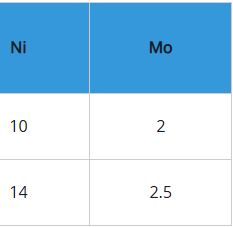
SS 316 Chemical Component

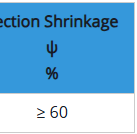
SS 316 Mechanical Properties

Contact Us
Welcome To Us For Further Communication
Foshan PMI STEEL, a distinguished supplier of Nickel Alloy Bars, is committed to delivering top-tier products to our global clientele. Our comprehensive range of nickel alloy bars encompasses industry-leading materials such as Inconel, Incoloy, Hastelloy, and Nitronic, renowned for their superior corrosion resistance and mechanical properties, particularly in high-temperature applications. With a meticulously maintained 1200 sq.m. warehouse, we ensure the availability of standard nickel alloy products, including Alloy 600, Alloy 718, Alloy 800, and Alloy C276, to meet the diverse and time-sensitive needs of our customers.
Email : sales@pmisteel.com
Mobile: + 86 139 2726 3132
© 2020. PMI STEEL . All rights reserved.
Contact
NO.18,Xinye 4 Road, Shunde Distric, Foshan City,Guangdong P.R. China, 528300
Phone : + 86 757 2639 1388


